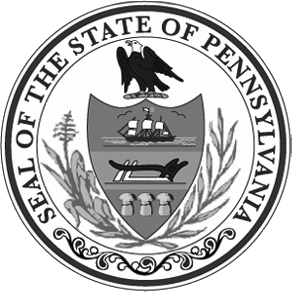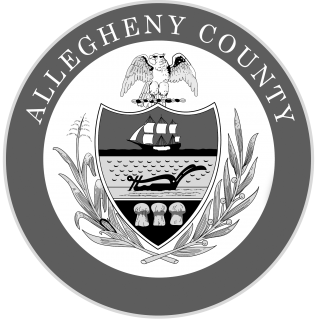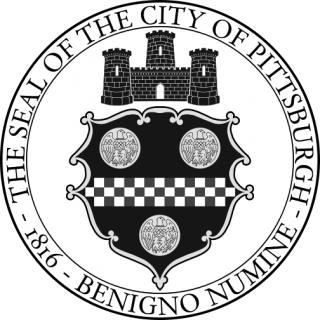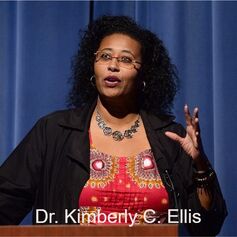 The Buccini/Pollin Group (BPG) is pleased to announce the promotion of Dr. Kimberly C. Ellis to a new, full time position of Director of Community, Arts and Culture for its Pittsburgh office. Kimberly C. Elis, Ph.D. is a Scholar of American and Africana Studies, an Artist, Activist and Entrepreneur, as well as a playwright, world traveler and international thought leader on culture, gender and social technology. She served on a Downtown Pittsburgh Partnership Committee to install a North Star Constellation at the center of Market Square and unveiled it with Mayor Ravenstahl and other stakeholders. And working with the Heinz History Center and Sam Black, Dr. Ellis served on a Committee to create and edit the historic landmark for playwright, August Wilson, which is permanently placed in front of the August Wilson House. "I have been working in the community for a long time, in many different areas, but always to help inform, empower and inspire. I am honored to take on this new position of Director of Community, Arts and Culture, with the Buccini/Pollin Group because it reflects my values and allows me to honor my community, empower artists, entrepreneurs, and workers, and to spark economic vitality throughout the Upper, Middle and Lower Hill, and the city of Pittsburgh. I have always been someone who thinks outside of the box and about big ideas, so this is a good fit." This is a newly created position that leverages her previous role as Lower Hill Historian and Cultural Legacy Consultant into a permanent role focused on engaging the community and empowering Hill residents, homeowners, artists and entrepreneurs, especially as BPG moves into the next phase of the Lower Hill development made possible by the advancing FNB Financial Center project. A longtime resident of the historic Hill District, Dr. Ellis is the founder of the Historic Hill Institute, co-created the “Build the Hill” Community Conference and remains a consultant on the history of the neighborhood and its historic preservation. She served as a fellow for the National Trust for Historic Preservation; and is responsible for launching the campaign to make living in “the Historic Hill District” popular. Today, residents say it without thinking twice about this purposeful awareness campaign. Dr. Ellis worked to secure the first Community Benefits Agreement in the State of Pennsylvania, co-created the Greater Hill District Masterplan and contributed to its historic preservation plans. She later worked with CH Planning to finalize urban planning for the historic Hill District. Dr. Ellis is a professional tour guide that gives tours of the historic Hill District and Pittsburgh and was featured in the New York Times for her work on the Underground Railroad in Pittsburgh. Most recently, Dr. Ellis served as the Historian and Artist on the I-579 CAP Park, where she created the History walls, a fictional character named, “Keisha” and wrote her storyline and dialogue. Keisha is at least one of the culturally-responsive elements that will be utilized in the Lower Hill Urban Open Space. In June 2017, Dr. Ellis was the Keynote Speaker for the John Hope Franklin Center for Reconciliation Symposium, which had its focus on Arts Activism, and in July 2017, she served as a member of the Tulsa delegation for the Initiatives of Change, "Just Governance for Human Security" Conference in Caux, Switzerland. At that conference, Dr. Ellis also earned a "Human Security X" certificate under the purview of the United Nations' "Initiatives of Change" program. Dr. Kimberly C. Ellis will appear as a lead historian and storyteller in the “Terror in Tulsa” documentary, which will debut on The History Channel on May 31, 2021. She continues to educate the public about the worst and still unresolved case of domestic terrorism in United State’s History. Dr. Ellis is also a freelance journalist, playwright, screenwriter and previously served as an adjunct professor at Carnegie Mellon University, teaching their inaugural course on “August Wilson Dramas” for their Literary Culture program. She teaches online for the general public. She can be found at DrKimberlyEllis.com.
0 Comments
The Pittsburgh Penguins and development partner The Buccini/Pollin Group (BPG) are pleased to announce the opening of a Lower Hill First Source Employment Opportunity Center in the heart of Hill District, blocks away from the 28-acre Lower Hill redevelopment. The mission of the First Source Center is to provide a central location for residents to obtain better access to job opportunities, career training, and pathways to construction, professional and service-related employment in connection with the Lower Hill redevelopment, as well as more broadly with other employers across the City and region.
The First Source Center will be located on the first floor of the historic Hill House, located at 1835 Centre Avenue, in space leased from E Properties and Development, the owner and manager of the property. The build-out construction for the space is being completed by Massaro in a partnership with TD Construction, a Hill District-based minority contracting firm owned by Derrick Tillman and Darnell Dinkins. Delivering upon the commitment by the development team under the Community Collaboration and Implementation Plan (CCIP) relating to the Lower Hill redevelopment, the grand opening for the First Source Center is planned for mid-May. The Penguins and BPG recruited a group of founding partners to launch and operate the First Source Center, including PJ Dick, Massaro, and Mascaro construction companies, Partner4 Work, PA CareerLink, the Builders Guild of Western PA, and the A. Phillip Randolph Institute. Programming at the First Source Center will assist residents seeking job opportunities, career training, career exploration, resume building and other workforce development services. Job readiness support including transportation assistance, record expungement, pardon assistance, and referrals to social and pro bono legal services will also be available at the First Source Center. “We are excited to help bring job opportunities to residents in the heart of the Hill District,” said Dorin Dickerson, Director of Development with the Pittsburgh Penguins and formerly with Mascaro construction. “The opening of the First Source Center is timed with our advancement of redevelopment on the Lower Hill, which will bring thousands of construction jobs and thousands more permanent jobs to the city and the Hill District community,” said Dickerson. The Penguins and BPG are coordinating a comprehensive outreach effort to fully inform residents from the Hill District and across the city and region of all employment opportunities on the Lower Hill redevelopment. PITTSBURGH, PA – April 27, 2021 – F.N.B. Corporation (NYSE: FNB) announced the expansion of its commitment to drive economic development in the Hill District community of Pittsburgh, PA, with a significant investment in programs aiming to connect local businesses and entrepreneurs with essential funding.
Highlighting FNB’s commitment is a $5 million investment in the launch of its new, proprietary Hill District Gap Lending Program, which is designed to address financing gaps for real estate projects in the community. FNB will provide loans of up to $400,000 and flexible lending parameters for local businesses that require additional funding to complete a capital structure so they can move forward with developing or redeveloping community assets. With an emphasis on serving low- to moderate-income and predominantly minority census tracts in the Hill District, the program intends to support projects that improve the community and promote wealth building through the development and ownership of commercial real estate. To ensure resources are directed toward opportunities that will best benefit the Hill District, FNB will collaborate with community organizations including the Hill Community Development Corporation and Neighborhood Allies to identify and engage prospective participants. The Company also has invested $2 million in the Urban Redevelopment Authority of Pittsburgh (URA) and Invest PGH, Inc., a newly certified Community Development Financial Institution that spun off of the URA, to support lending programs for businesses that traditionally have experienced financing challenges. As part of FNB’s investment, $1 million will be utilized by the URA’s Small Contractor Line of Credit Program for minority contractors in the Hill District who are taking on projects that require access to working capital. Pending URA Board approval, the line of credit program will be launched on May 13, 2021. In addition, $1 million will be provided directly to Invest PGH, Inc. for its Accelerating Business Expansion Loan (ABEL) Program, which stimulates growth for small- to medium-sized businesses through flexible financing for real estate purchases, development and other expansion needs. Through ABEL, FNB’s funds will primarily benefit businesses in Pittsburgh’s Hill District and Northside communities. “Our commitment to these initiatives, including our own new gap lending program, both extends FNB’s long history of service to the Hill District and affirms our plans for ongoing investment in this vibrant neighborhood,” said Vincent J. Delie, Jr., Chairman, President and Chief Executive Officer of F.N.B. Corporation and First National Bank. “Our goal is to connect historically underserved members of our community with access to capital and other resources so that we can foster opportunities and, ultimately, drive growth and success for the greater Hill District and the Pittsburgh Region overall.” These programs build on FNB’s community lending, investments and strong relationships in the Hill District and align to its mission to improve the quality of life in the communities it serves. The Company has announced significant contributions to the Hill District Federal Credit Union and to the development of an innovative education facility in the Ammon Community Recreation Center. Throughout its footprint, FNB has strategically invested millions of dollars in local initiatives and relief funds that stimulate job growth, create affordable housing opportunities and foster overall social and economic development. Visit FNB’s website to learn more about its legacy of community engagement and commitment to diversity and inclusion. About F.N.B. Corporation F.N.B. Corporation (NYSE: FNB), headquartered in Pittsburgh, Pennsylvania, is a diversified financial services company operating in seven states and the District of Columbia. FNB’s market coverage spans several major metropolitan areas including Pittsburgh, Pennsylvania; Baltimore, Maryland; Cleveland, Ohio; Washington, D.C.; and Charlotte, Raleigh, Durham and the Piedmont Triad (Winston-Salem, Greensboro and High Point) in North Carolina. The Company has total assets of more than $38 billion and nearly 340 banking offices throughout Pennsylvania, Ohio, Maryland, West Virginia, North Carolina, South Carolina, Washington, D.C. and Virginia. FNB provides a full range of commercial banking, consumer banking and wealth management solutions through its subsidiary network, which is led by its largest affiliate, First National Bank of Pennsylvania, founded in 1864. Commercial banking solutions include corporate banking, small business banking, investment real estate financing, government banking, business credit, capital markets and lease financing. The consumer banking segment provides a full line of consumer banking products and services, including deposit products, mortgage lending, consumer lending and a complete suite of mobile and online banking services. FNB's wealth management services include asset management, private banking and insurance. The common stock of F.N.B. Corporation trades on the New York Stock Exchange under the symbol "FNB" and is included in Standard & Poor's MidCap 400 Index with the Global Industry Classification Standard (GICS) Regional Banks Sub-Industry Index. Customers, shareholders and investors can learn more about this regional financial institution by visiting the F.N.B. Corporation website at www.fnbcorporation.com. The Planning Commission briefing for the catalytic FNB Financial Center on the Lower Hill April 20, 2021. The development team discusses it's transformative Lower Hill redevelopment and Greater Hill reinvestment plans. View the full presentation below! 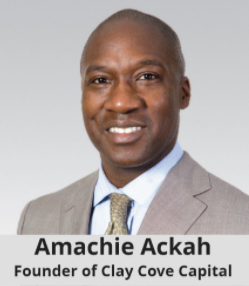 The Buccini/Pollin Group and Clay Cove Capital are pleased to announce the formation of a $5 million Greater Hill District Opportunity Zone Fund to help maximize the positive community benefits arising from the Lower Hill redevelopment. The Fund is being formed to promote investment in real estate projects in the middle and upper Hill District and along the Centre Avenue corridor, and help address head-on the ongoing challenges of overcoming poverty and advancing sustainable community development in the greater Hill District neighborhood. The founding investors in the Fund include BPG, Clay Cove Capital and the Pittsburgh Penguins. “We are working to solve the access to capital problem that has been plaguing the Hill District for generations,” said Amachie Ackah, Founder of Clay Cove Capital, an anchor investor in the Fund. “There are residents and entrepreneurs in the Hill District who lack access to capital, and we are offering to bring Opportunity Zone investment to their projects and help the continued economic recovery of the Hill District.” “We believe that a partnership with Clay Cove Capital, one of the leading Black-owned real estate management firms in the United States, and partnered with the Pittsburgh Penguins and FNB Bank, will allow us to attract investment into this important neighborhood,” said Chris Buccini, Co-President of The Buccini/Pollin Group. The Lower Hill was recently added to the middle Hill District census tract as part of the 2020 Census, which now includes the Lower Hill redevelopment within the Greater Hill District Opportunity Zone. Because of this designation, investors seeking Opportunity Zone investments now have a federal tax incentive to invest in the entire Hill District. The Fund will be created to make investments in the middle and upper Hill District neighborhood, including vacant and abandoned properties, improving housing conditions for existing residents, and ensuring overall long-term sustainable investment in the entire Hill District neighborhood. The Fund is being formed by the Lower Hill development team as an additional coordinated community development strategy under the Community Collaboration and Implementation Plan (CCIP) adopted in 2014. The founding investors of the Fund will work with Councilman Daniel Lavelle, Representative Jake Wheatley, and members of the CCIP Executive Management Committee to identify the best ways to implement this fund in the Hill District. About Opportunity Zones - Opportunity Zone legislation was passed in 2017 to attract capital to economically distressed areas. The legislation allows for investors to defer capital gains taxes on an investment by reinvesting into a new project in an opportunity zone that will be significantly approved. Ultimately, the Opportunity Zone will help the Hill District by attracting capital that would otherwise not invest. |
Archives
May 2024
Categories
All
|
 RSS Feed
RSS Feed

